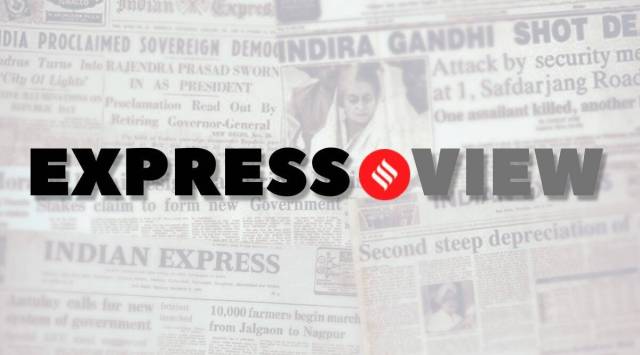
After a short lull, arson and violence and killings are back in the ethnic tension that has singed Manipur for nearly a month. Ahead of Union Home Minister Amit Shah’s arrival in Imphal, at least two people, including a policeman were killed. On Sunday, Chief Minister Biren Singh said security forces have killed 40 Kuki militants: At least 75 civilians have died in the violence so far. Meanwhile, there have been reports of mobs attacking the houses of legislators, police stations and looting armouries. The chasm between the Meiteis and Kukis only seems to have widened over the days with no attempt being made at facilitating a reconciliation. The battle in the courts over the granting of tribal status to the Meiteis is yet to be settled though the Supreme Court had criticised the directive. All evidence points to a crisis of governance, with mobs controlling the street and the administration missing from the scene. Mobs have rushed in to fill the political vacuum.
The first task before the government is to step in, to restore law and order. Just as the riots started, the Union Home Ministry had said central forces will be deployed to control the situation. This was essential since the breakdown of trust among communities had seeped into the police force as well. Normally, the presence of a neutral force ought to have allowed the state to reclaim lost ground and enforce peace. But that has not happened despite the Central minister of state for home, Nityanand Rai, visiting Imphal. The lesson to draw from this is that a strong political leadership is necessary to get the warring parties, who have a long history of distrust, to sit across the table and start talking. The first major failure of the administration was in not anticipating that the Manipur High Court’s controversial March 27 order could trigger a communal conflict. Imphal’s aggressive targeting of poppy cultivation in the hills and its unexpected decision to pull out of the Suspension of Operations (SoO) agreement with two tribal insurgent groups in March on the grounds that its leadership was based in Myanmar and that they were aiding the protests in the hills had already deepened the Valley-hill divide. Biren Singh is increasingly seen as a partisan figure by the hill communities, who perceive his administration to be pro-Meitei. Even legislative units seem divided along communal lines, with community/tribe affiliations trumping party loyalties. The political leadership also needs to address the legal conundrum, which can be traced to broader questions of development, employment and educational opportunities, land ownership and usage and so on. An additional dimension that seems to complicate the Manipur picture is the post-coup turmoil in Myanmar, which has led to an influx of refugees, including people with alleged links to anti-junta resistance groups, fuelling rumours about demographic change.
Clearly, multiple factors are at play in Manipur. The response needs to be multi-layered too: At the judicial, political, social levels. The state administration top down seem to be clueless or complicit or somewhere in between. The Centre needs to step in to build public trust so that this crucial border state, the gateway to India’s Act East dreams, does not slip further. Not just a city or a state, peace in the entire region is at stake.